Three product design projects were awarded grants as part of the MIN-CORPS MVP Challenge! MVP or "Minimum Viable Product" is a tool to show customers and stakeholders how an innovative idea could work, capture feedback, and bring a concept one step closer to reality.

An intercollegiate partnership, MIN-CORPS provides education and coaching programs that help students, postdocs, and faculty develop the skills to translate innovations into products and services. Each year, the MVP Challenge awards up to 30 grants from $100 to $5,000 in three divisions: Digital, Physical, and Social.
The grant recipients included College of Design Assistant Professor Carlye Lauff and graduate students Jack Jakubas and Jessica Jenkins for Octo: Educational Toy for Children with Congenital Heart Disease, undergraduate Jack Schutz for Fragile Pack, and undergraduate Pei Jet Teh for Equilibrium.
Octo: Educational Toy for Children with Congenital Heart Disease — Carlye Lauff, Jack Jakubas and Jessica Jenkins
Building off a project developed in partnership with Drs. Amr El-Bokl and Gurumurthy Hiremath (Department of Pediatrics, UMN Medical School) in the spring of 2022, this stuffed animal dinosaur toy is an educational and interactive companion for children with congenital heart disease that creates a positive, lasting imprint.
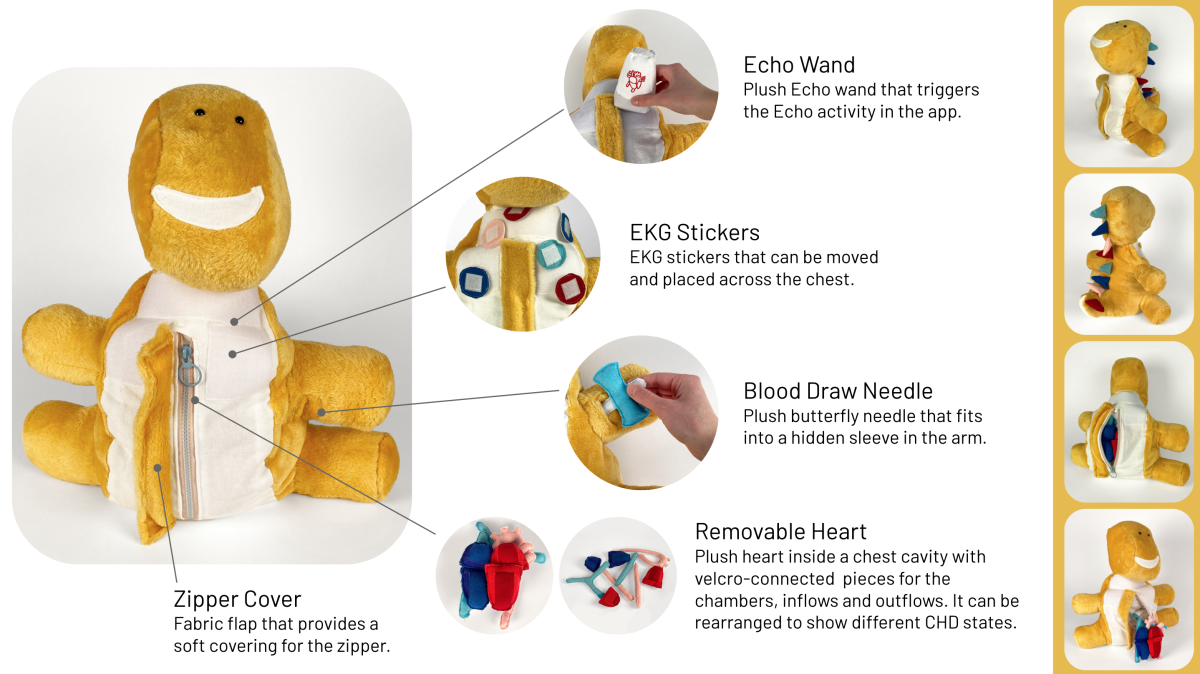
Jakubas and Jenkins were both introduced to the project by Dr. Lauff because of their interest in UX projects and product development for children, respectively.
“I was originally hesitant to take on the project because I have little experience designing for children,” said Jakubas. “But after seeing the previous work, I saw it as an opportunity to grow as a designer and create a multi-audience product. I was also drawn to the project because of its potential for positive impact in my community.”
“I am interested in products that relate to kids and have been curious to work on a project with softgoods,” explained Jenkins. “It was also interesting to get to continue the work that has been done by prior students. Most of our projects start at an earlier stage of development.”
With the funding from the MIN-CORPS grant, Jakubas and Jenkins hope to explore extending augmented reality experiences and animation with the toy and to perform more user testing.
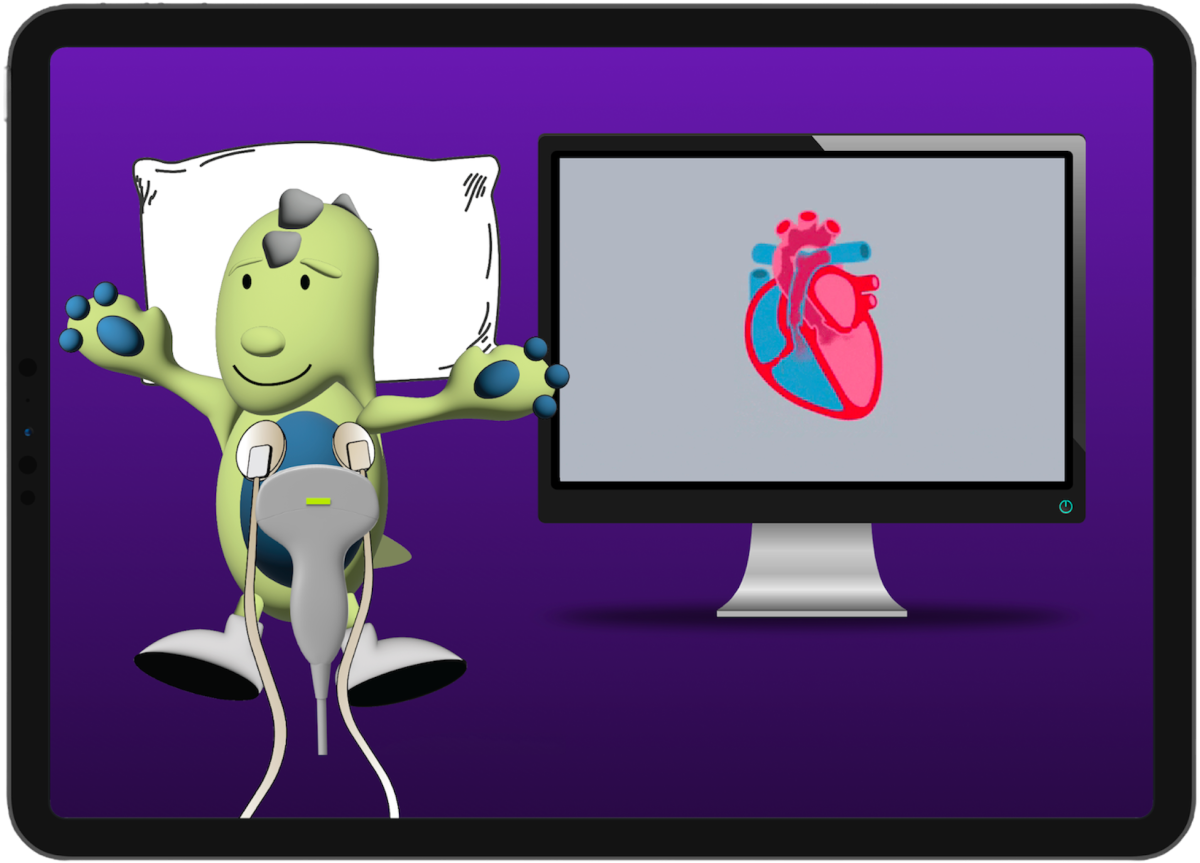
Fragile Pack — Jack Schutz
Shipping fragile items is challenging, but shipping fragile items sustainably is even more of a challenge. Consumers not only lack recyclable options to ship their goods, but the options that are available are hard to use. Fragile Pack aims to solve this issue. It is a recyclable corrugated packing tool that helps people easily pack and ship their fragile items with peace of mind.
“I started working on Fragile Pack as a capstone project in my product design coursework,” said Schutz. “After moving for the fourth time in college, I was sick of the constant packing and unpacking of my things and was interested in making gadgets to help with moving.”
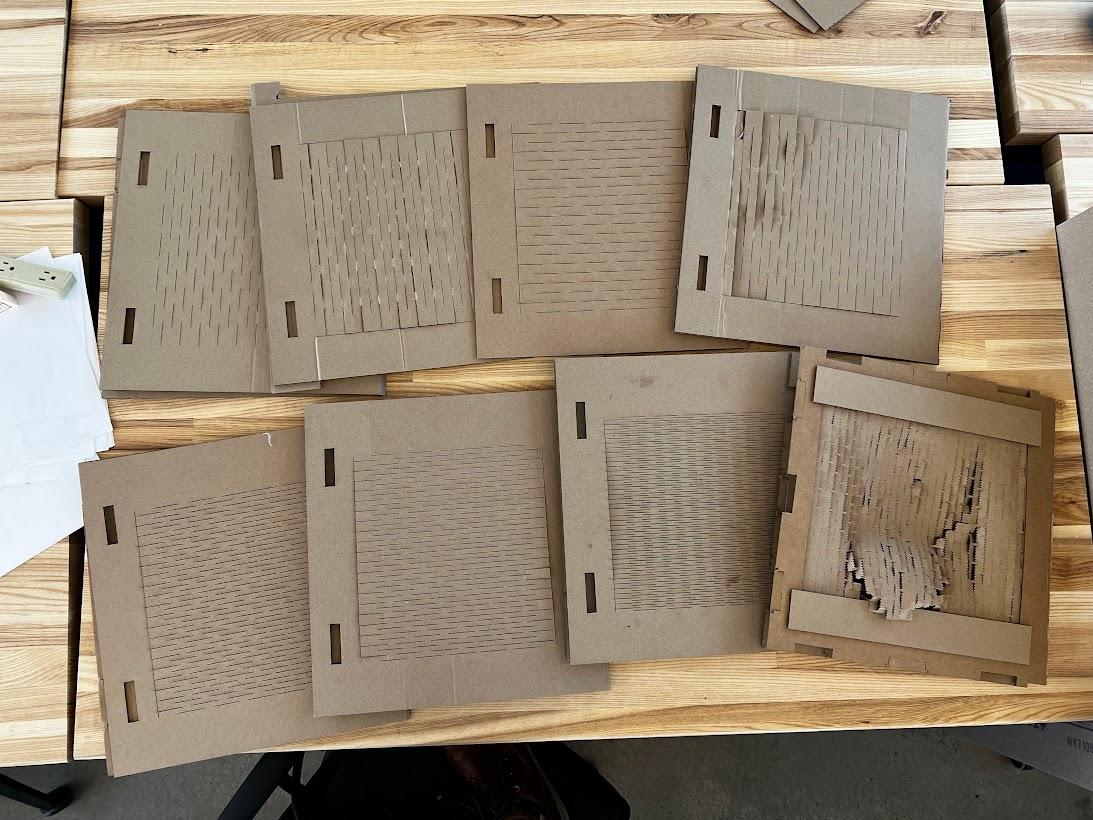
As Schutz interviewed others about their moving experiences, he found very few recyclable packing solutions. “The packing and unpacking process for users is messy and time-consuming. I set out to design a solution that was recyclable, easy to use, and to streamline the packing process.”
With the MIN-CORPS grant, Schutz wants to ensure that items packed in Fragile Pack don't shift around in the moving process. To test this he will send items through the postal system. He will also use the grant funds for laser cutting and prototyping the internal cardboard pieces.
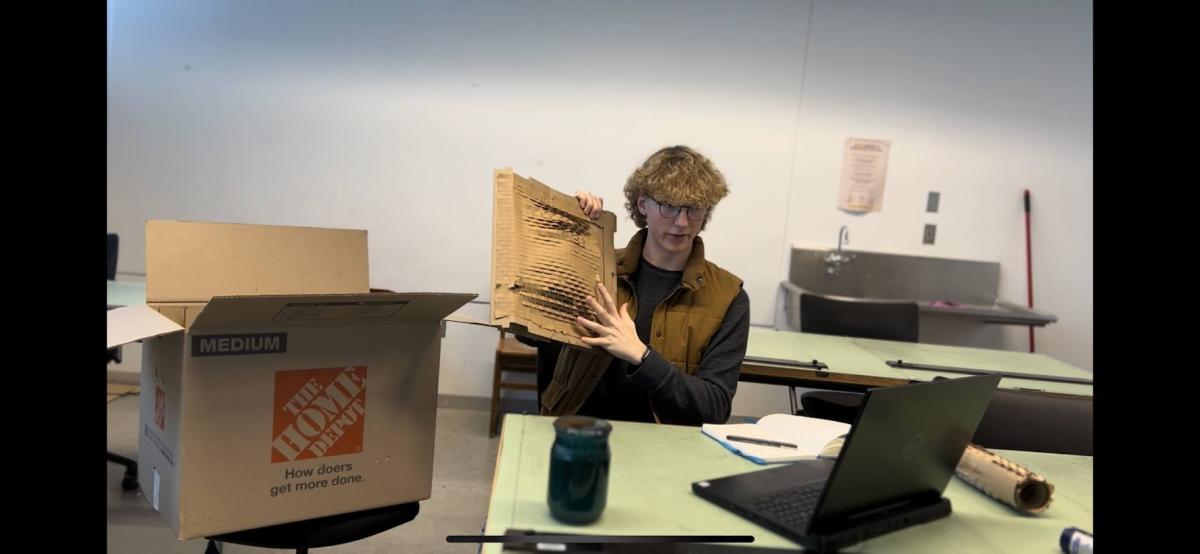
Equilibrium — Pei Jet Teh
Equilibrium is a carb counting scale that helps children with type 1 diabetes balance their diet with short-acting insulin. It started as a project for Teh’s capstone class in the fall 2022 semester. “I was looking into a variety of problems. One that jumped out to me was the significant increase in diabetes diagnoses worldwide,” Teh explained. “It just so happened that two of my classmates have younger siblings with type 1 diabetes.”
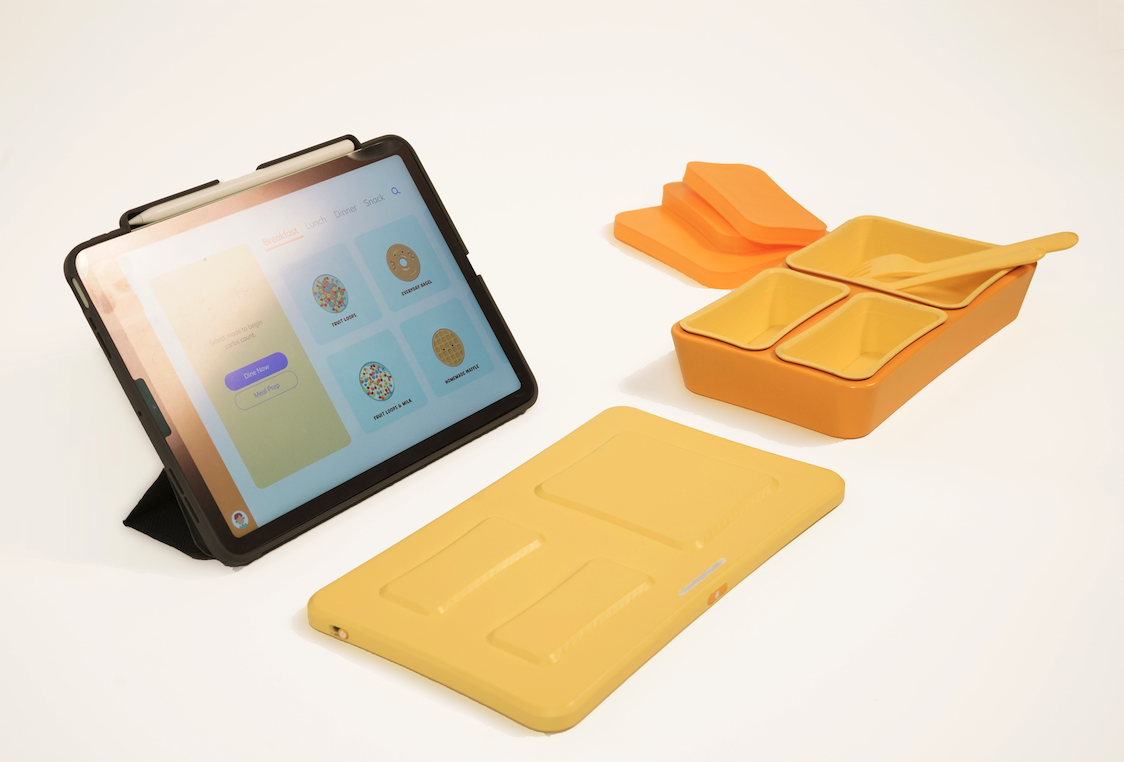
Through this connection, Teh learned how difficult it can be to manage diabetes. “The stories shared were extremely shocking to me as an outsider. Diabetic management is hectic, time-consuming, and stressful, especially for adolescents and their caretakers,” said Teh.
The more research she did, the more determined she became to help. “This is why I designed Equilibrium. I am excited to utilize the grant funds to further develop this product idea with the hopes of bringing the idea one step closer to reality.”
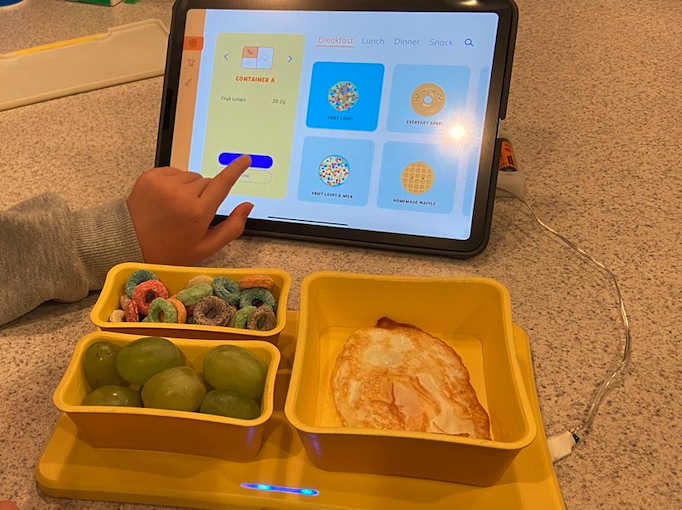
The three product design projects will be presented at the MVP Challenge Showcase at Founders Day on Wednesday, May 10. During the event, project teams will compete for the following awards: Best Undergraduate Student Prototype, Audience Choice Prototype, Alpha Prototype (Early Stage), and Beta Prototype (Working).
Innovation starts with new challenges and fresh perspectives, a concept well known to both the Product Design program and Andersen Corporation. This notion formed the basis of their spring 2021 collaboration when graduating product design seniors worked directly with Andersen Windows and Doors products and professionals to develop solutions for “bringing the outdoors in” as part of their capstone projects.
Congenital heart disease (CHD) is a physical heart defect that begins in the womb, impacting around 40,000 children born in the U.S. each year. On a mission to improve education for diagnosed children and their families, Drs. Amr El-Bokl and Gurumurthy Hiremath (Department of Pediatrics, UMN Medical School), partnered with product design undergraduate student Levi Skelton and Assistant Professor Carlye Lauff to create a product for teaching children about CHD.
After two years of pursuing a degree in engineering, Ben Leibham (B.S. ’18, Product Design) knew that something was missing. In search of a field that would combine his interests in art, engineering, and business, Ben spoke with an industrial designer who encouraged him to pursue a degree in product design.





